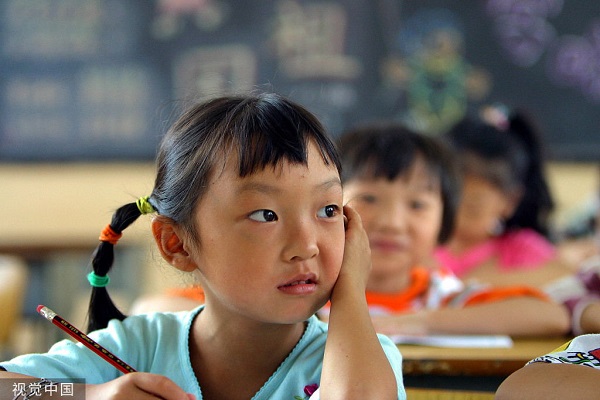Action plan a boost for day care services


Choosing a day care center for her 2-year-old son proved a daunting challenge for Shanghai resident Wang Jie.
While many Chinese couples rely on relatives, especially their parents, for babysitting, Wang, 27, and her husband, who live in the city's Jing'an district, had to find a solution on their own.
"It is a physically demanding job to babysit. The fact that our parents are either yet to retire or in poor physical condition made that impossible," Wang said, adding that the high cost of living in a top-tier city like Shanghai meant she had to work.
Wang, who used to be a kindergarten teacher, said she carefully investigated each care center before sending her son there.
He is now attending a second center after the first one she chose went out of business due to poor management. It has yet to refund the money she paid.
"You want to find facilities with teachers of high quality, good sanitation conditions and a good price," she said.
"Infants are not capable of caring for themselves, and thus the quality of caregivers is the key."
Solving the dilemma faced by parents like Wang has been a priority for the central government this year.
In May, the General Office of the State Council rolled out a guideline to encourage the development of care services for children under age 3.
In the latest measure, the National Development and Reform Commission and the National Health Commission released an action plan last month designed to encourage social capital to boost the supply of affordable care services for children under age 3.
The central government will encourage municipal authorities to systematically plan and develop a system of care services through investment from government budgets.
Municipal authorities will provide a list of policy incentives and sign cooperation agreements with businesses to boost the supply of affordable child care services, the action plan said.
Businesses, including institutions and social organizations must make public a list of the affordable services they provide and accept supervision from the public, it added.
It also promised equal treatment for all types of businesses, whether they are domestic or foreign, Stateowned or private.
The action plan said the safety and health of infants and young children will be made a top priority, with measures to ensure that government oversight is in place and the development and operations of day care centers are in keeping with laws and regulations.
Local authorities will also be encouraged to boost land use support to such services, and public rental housing could be used by day care centers for free in some areas.
To boost the supply of talent, more colleges and vocational schools will introduce majors to train day care center workers, and the government will include infant caregivers in its subsidized vocational training scheme, according to the plan.
The measures launched by the authorities come as China grapples with a dwindling birthrate, even though every couple is now allowed to have two children following the introduction of the second-child policy in January 2016.
China recorded 15.23 million births last year, down 2 million from 2017 and the second consecutive annual decline, with the official birthrate dropping to the lowest level since 1961, according to the National Bureau of Statistics.
A poll conducted by the National Health Commission in 2016 that surveyed thousands of parents in 10 cities found that over a third of parents with children under age 3 wanted day care centers to look after their children on weekdays. However, only 4.1 percent had succeeded in finding a place in such a center for their child.
Chu Zhaohui, a researcher at the National Institute of Education Sciences, said concerns about the dipping birthrate were behind the government's decision to boost the supply of affordable child care services.
"The government was rarely involved in the sector previously, and the drop in new births now necessitates more government involvement," he said.
However, Chu said, it was important for the authorities to rely on the market to meet the demand for day care services, adding that the authorities should prioritize the development of the kind of basic day care services that are essential for most families.




